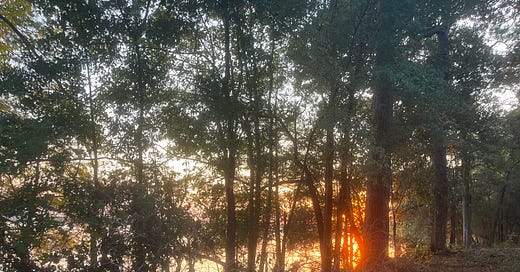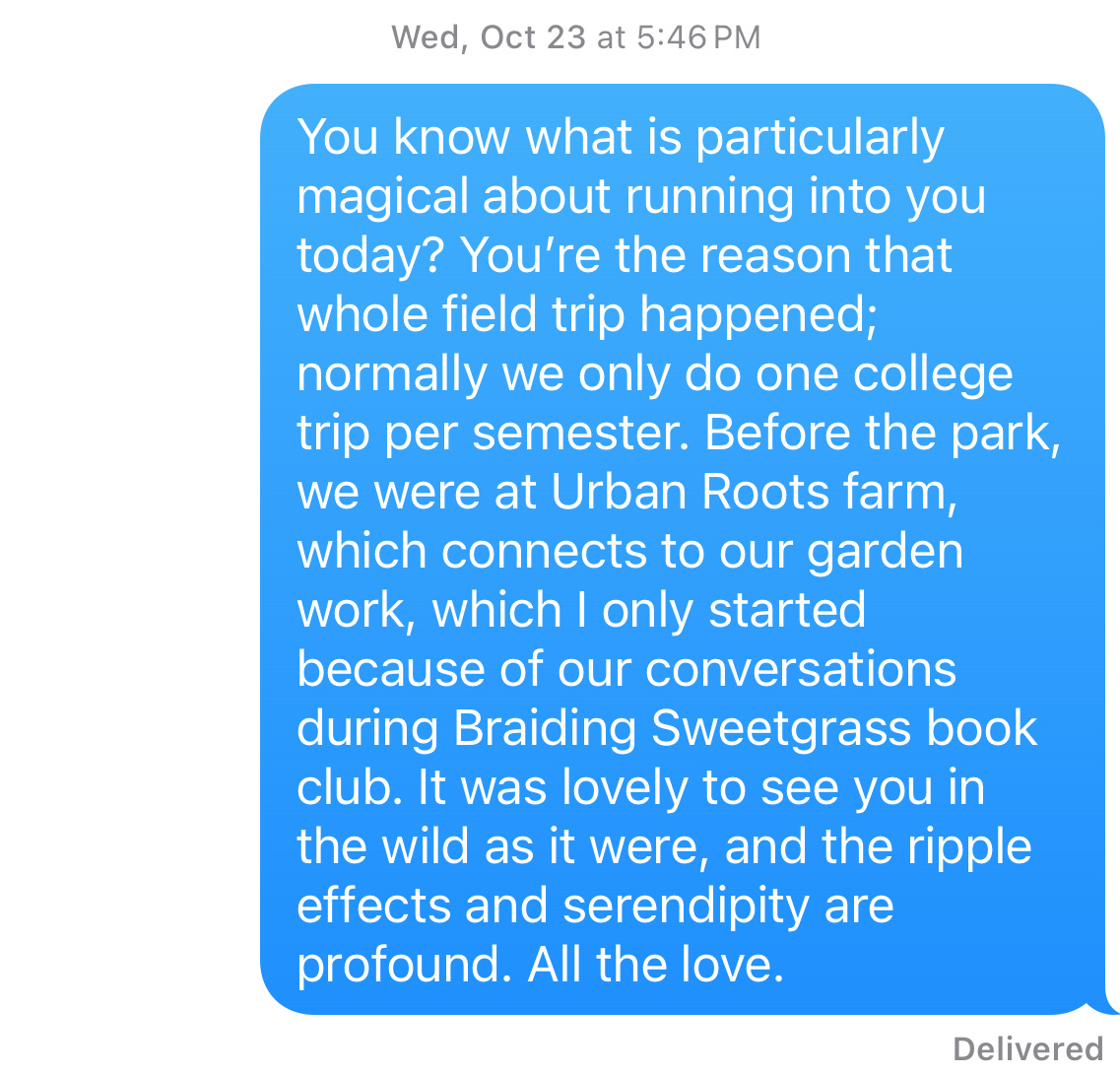Things take the time they take. Don’t
worry.
How many roads did Saint Augustine follow
before he became Saint Augustine?
Mary Oliver’s perfect poem “Don’t Worry” is a touchstone for me, as impatience and hand-wringing over a perceived lack of forward progress are my two biggest daily sources of consternation. I don’t like to wait for things to happen; I like to MAKE them happen, often to the detriment of my sense of balance, and sometimes to my relationships and my health.
Last year, my motto, after switching from tested to non-tested content at work, was “things take the time they take” (this was before I had encountered this poem). The luxury of time is not one not afforded to core teachers, and I was committed to the idea of taking the time I needed to teach what I was teaching, even if I was TERRIBLE at executing it on a daily basis. Learning a new content and a new grade level was absolutely no joke; but the idea that, if something took four times as long as I’d expected it to, it wasn’t a crisis, was a saving grace, even on the days when I needed four different people to remind me of my own motto.
However, a motto cannot undo my focus on time and progress, my university-experience’s obsession with scope and sequence, or my English teacher’s nervous system related to covering a ridiculous amount of content in a very short timeframe. I will never like to wait to see the results of something, and will never be described as “patient” with anything that isn’t someone learning something new.
Which is why yoga is such a key practice for me. It teaches presence (a prerequisite for patience) and allows me to practice showing up without demonstrable “progress” (because what even IS that in yoga?) and the non-linear way my body works and feels on different days. Its ethical principles, like aparigraha (non-grasping) and brahmacharya (right use of energy), also serve as powerful reminders that a dogged pursuit of doing things on a timeline isn’t the only or the best way to exist.
It’s one thing to believe these things and practice them on the mat. It’s a whole other thing to bring those pieces of awareness into the rest of my life, particularly work in such an urgent career field with a notoriously unforgiving schedule. October is known in public education as one of the worst months. Sometimes called Shocktober, it’s a low point of morale, especially for early-career teachers, a time when student behavior issues tend to spike, a month without natural breathing room, and, in Texas, a time when emotional exhaustion from physical heat escalates these challenges. My October was overscheduled to the point of being laughable; there was so much that my usual organizational superpowers failed me. If it wasn’t happening in the next 24 hours, it wasn’t on my radar, because it couldn’t be, because the volume of things that WERE happening in the next 24 hours was simply too large.
Which turned out to be an interesting background for some real and unexpected outcomes around time and progress. One thing that a lack of a big-picture plan does is force me to focus on what is happening now and move forward in the best way possible at the moment. I don’t think this is a responsible or sustainable career plan long-term, but discovered some hidden benefits this month in terms of both forward progress and accepting a lack of it.
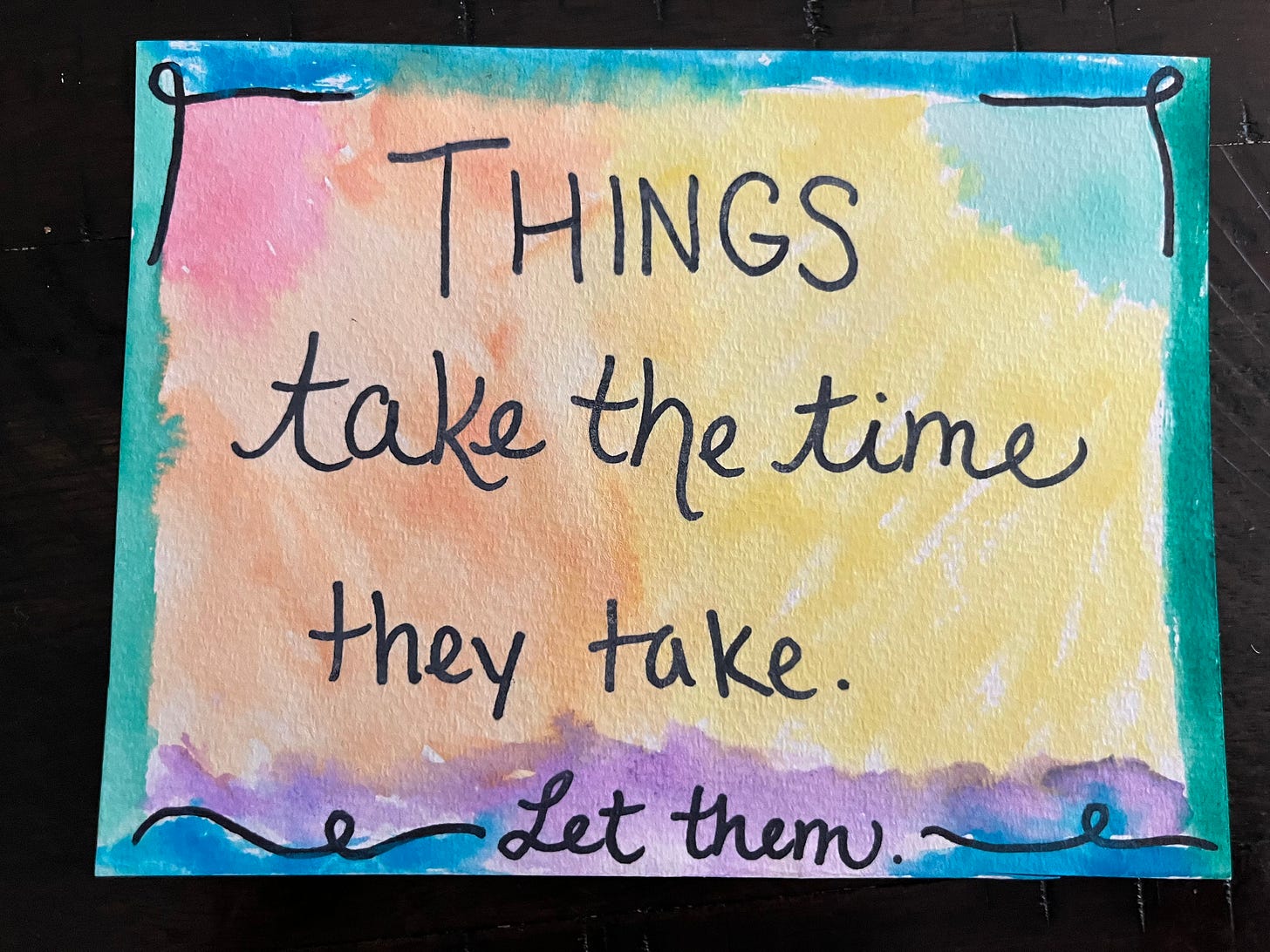
Just Because You Don’t Do It For A Long Time Doesn’t Mean You’ll Never Do It
This month saw, seemingly out of nowhere (though nothing is truly out of nowhere) some big jumps forward in my teaching practice, specifically related to mindfulness. My journey of applying what I’ve learned on my yoga mat to my teaching through my teacher-focused yoga training is a longer story than will fit here. Suffice it to say that the progress has been slower and less linear than I’d have liked. I’ve felt deeply unsure for a long time because I’m learning all of these transformative practices but can’t extend them beyond myself to actually share them with people at work (students, colleagues, etc.).
But this October something shifted; I led a breathing exercise at the beginning of a professional development session, a student suggested having a class job to lead the daily breathing exercises (which means they’ve internalized the idea that the breathing exercises exist and have some value), and just last week, I got my students out of their seat for a mindful stretch break between halves of class. I’ve been trying to do that for LITERAL YEARS, and every time have chickened out. Then one day last week, the words came out of my mouth before I’d thought them through, “all right, y’all, stand up, let’s do some stretching before we move into the next thing. We’ve been sitting for too long.” And THEY DID IT. And it WAS FINE.
I’ve spent the last two years half convinced that I’d never apply what I was learning beyond myself, and, while that was disappointing, I didn’t have a lot of energy to really worry about or work on it. But then, in the time it took, it started to happen.
Sometimes Things Take Less Time Than You Expect
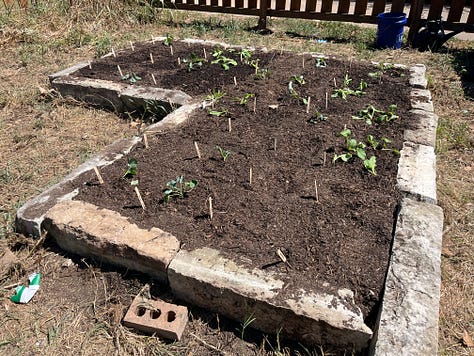
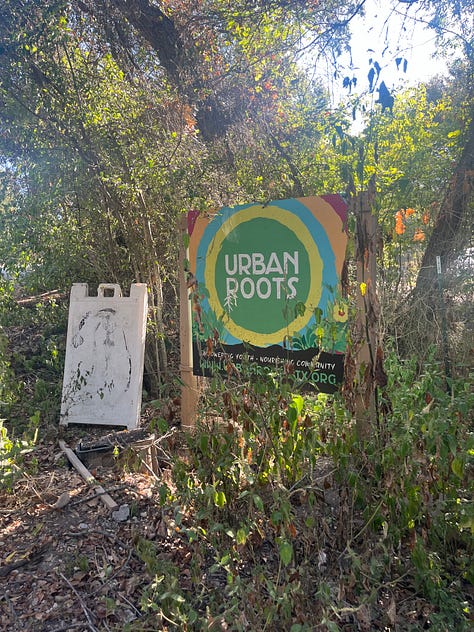
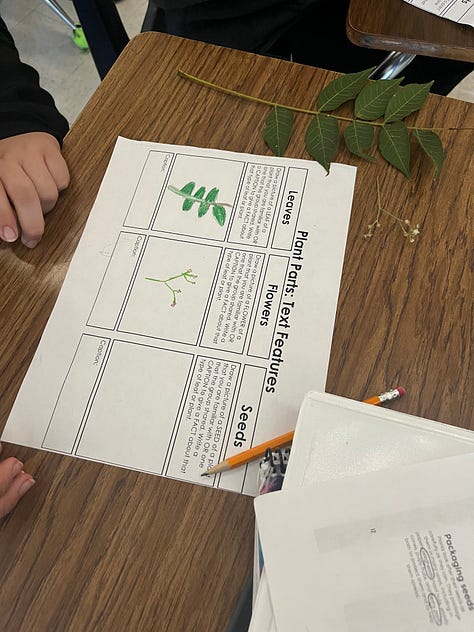
One of my favorite moments of October was turning around while my students were eating lunch and playing soccer at a park on our field trip and seeing one of my yoga teachers, completely unexpectedly, leading her own group of students. We’ve never seen each other outside the walls of her studio, and the moment of “Wait, WHAT? You? Here?” was recognizable and pretty magical. Having the different parts of my life intersect in this way happens pretty rarely, and it was such a moment of pause and joy in a very packed day.
What was more significant than just the coincidence of running into her (which is really saying something, because delightful coincidences are my favorite thing in the whole world) was that she was the initial impetus for the field trip, though she didn’t know it. She led a beautiful book club discussion last winter about Robin Wall Kimmerer’s Braiding Sweetgrass, calling it a “book of action.” That one phrase sparked my imagination for what it could look like to engage my students in a study of indigenous knowing and ecology and gardening and the natural world; even if it couldn’t be immersive and perfect, it could happen in small ways.
Because of this conversation, I’m collaborating with our librarian and genius gardener to take my kids outside every other week to our campus garden.
Because of this conversation, they’re planting seeds and writing about their observations and learning about graphs through tracking the weather.
Because of this conversation, they’re taking all nature-themed field trips this year. One of which was the day I saw my teacher. Because this is how the world works sometimes.
This book club was in February; it actually boggles my mind that, only 8 months ago, I’d never thought of having my students garden. Their time outside is a key part of our curriculum and structure for the year; it’s the number one thing they’re curious about and look forward to. And before those conversations, it had never crossed my mind. Especially given how LONG it feels like it’s taken to incorporate other elements of what I’ve learned into my teaching (classroom, yoga, and otherwise), it was surprising to realize that sometimes, things actually happen faster than you anticipate.
So October has been the month where nothing happens at the pace I expect it to, but at the pace, apparently, it’s supposed to. I’m not trying to be saint anything (thank goodness), but it’s extraordinarily comforting to know that time has its own plans and if we can breathe through the discomfort of not knowing them and just doing the next best thing and the next best thing, magic can happen.
I’d love to hear about your thoughts on time and things you loved in October.
I hope you’ll join me for two classes in November; the one closest to Thanksgiving will be gratitude-themed.


